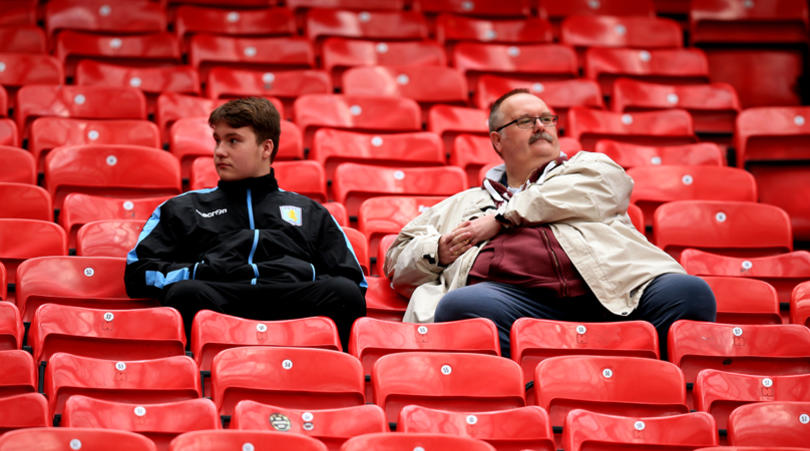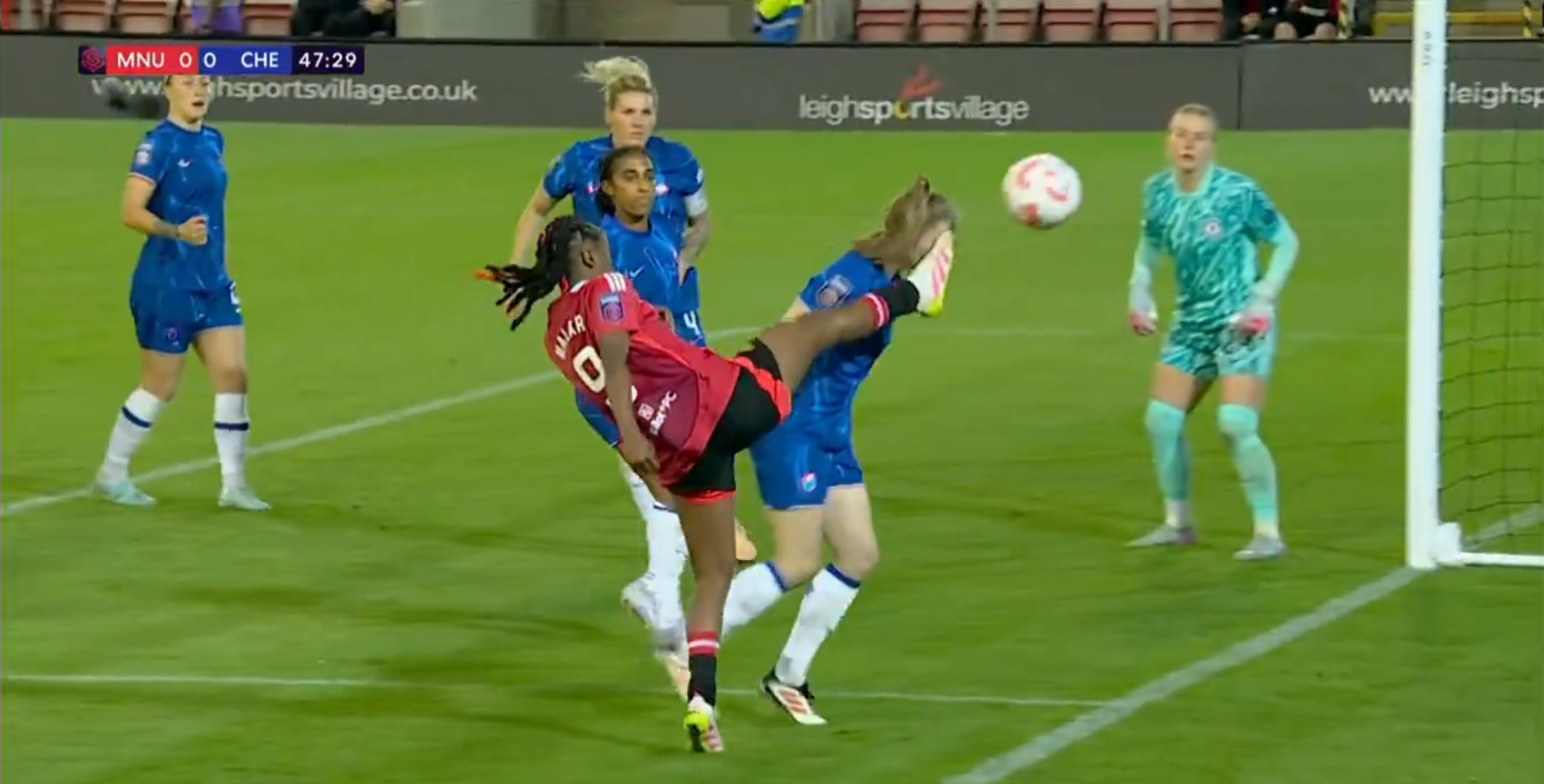What Leicester's title win really means for the Premier League
The Foxes hoisted aloft their Premier League trophy on Saturday, potentially paving the way for a new era in England's top flight. Alex Hess explores whether the division's newfound competitiveness is here to stay...
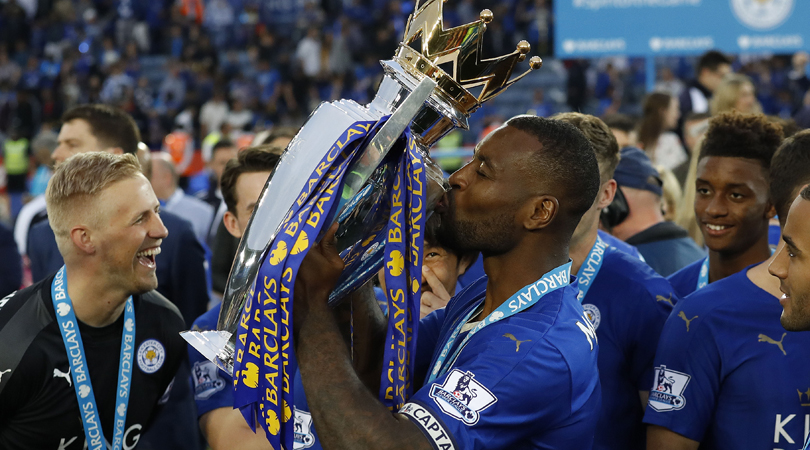
By now you'll have had time to get used to the idea that Leicester City have won the league. And not just any league, but the Premier League: the most commercially lucrative and rigidly hegemonised power structure in world football; the division ruled by superclubs and sugar daddies, its pecking order prescribed by pound signs.
Except it isn’t. As Leicester’s glistening gold medals prove, storming the elite isn't so impossible after all. In fact, all it took was sound recruitment, canny management and a healthy dose of self-belief.
That's an insulting simplification, of course. But part of the beauty of Leicester’s triumph is how magnificently uncomplicated it’s all been. In an age of tiki-taka, trequartistas and tactical tinkering, Claudio Ranieri’s men have attained the unattainable without any of that. What won them the league was refreshingly old-school. A solid defence. Pacey attackers. A settled XI. Four-four-fackin’-two. At a glance, you’d almost think anyone could do it.
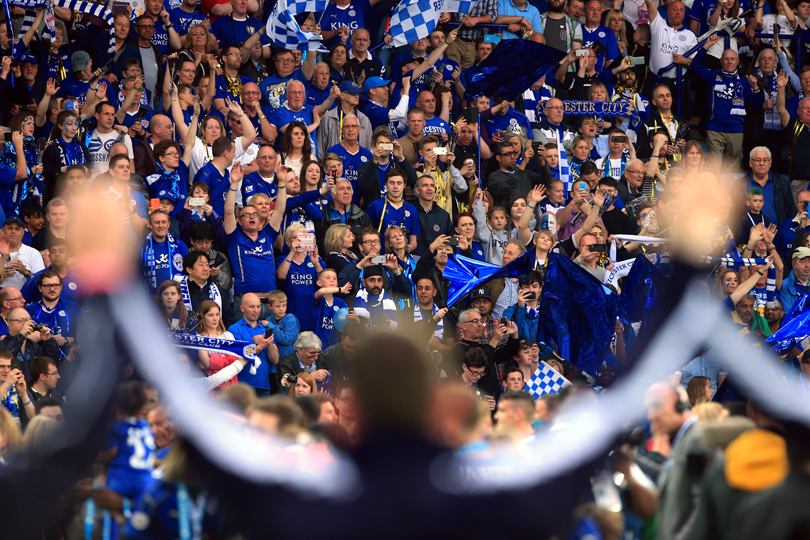
The question, then, is not how big a landmark Leicester’s achievement is (answer: the biggest), but what sort of a landmark: will it be looked back on as an unmatched, one-off conquest, or as the moment the Premier League’s once-stringent class system was felled for good? In other words, can Leicester’s gloriously simple triumph pave the way for other clubs of their ilk?
Sharing the wealth
With the cash flooding into the division’s middle regions ahead of the eye-bulging new TV deal, last summer was marked by an influx of Europe’s high-end footballers to clubs outside of England’s traditional elite
Certainly it is true that, Leicester or no Leicester, the central feature of this season has been the starkness with which the status quo has been upended. The final standings – likely to include Spurs in second, both Manchester clubs wildly off the pace, and Liverpool and Chelsea languishing forlornly in mid-table – will mark a sharp departure from the days when the flow of Champions League money meant the only thing to be decided about the top four between August and May was which order they’d finish in.
And as it was back then, much of the current situation is down to economics: with the cash flooding into the division’s middle regions ahead of the eye-bulging new TV deal, last summer was marked by an influx of Europe’s high-end footballers to clubs outside of England’s traditional elite. Combined with the ongoing struggles of that elite to hold onto their own stars, it meant this season saw the most even distribution of talent in the quarter-century since the Premier League’s breakaway.
Get FourFourTwo Newsletter
The best features, fun and footballing quizzes, straight to your inbox every week.
And the shift needed little time to take effect. Before August was out, Andre Ayew had scored decisive goals against Chelsea and Manchester United; the early-season Robin Hood acts of Crystal Palace and Stoke were headed up by Yohan Cabaye and Xherdan Shaqiri; and Dimitri Payet was central to West Ham snatching six points from Arsenal and Liverpool.
Leicester, of course, are an exception here in that they didn’t enlist any such star names. And yet, in taking full advantage of a season in which the power base at the top was upended and the scrabble for points became a relative free-for-all, they have still benefited, swept upwards by the sea change.
Elite struggles
Liverpool are an institution yet to overcome the trauma of The Slip as well as one in a genuine season of transition; Arsenal, well, Arsenal are Arsenal
Whether the Premier League’s Wild West act will endure is another matter, however. The TV money isn’t stopping any time soon, which means the Shaqiris and Cabayes will not stop flocking to the mid-rankers. What all of the above ignores, though, is the sense that this season’s mass regression by the league’s big guns has in fact been a truly freakish event.
Manchester United, the country’s commercial steamroller, are still staggering around in their post-Ferguson fog; Chelsea, runaway champions a year ago, have fallen victim to the scorched-earth side effects of Jose Mourinho; Manchester City, despite their absurd wealth, have become engaged in a six-month performance of Waiting For Pep; Liverpool are an institution yet to overcome the trauma of The Slip as well as one in a genuine season of transition; Arsenal? Well, Arsenal are Arsenal.
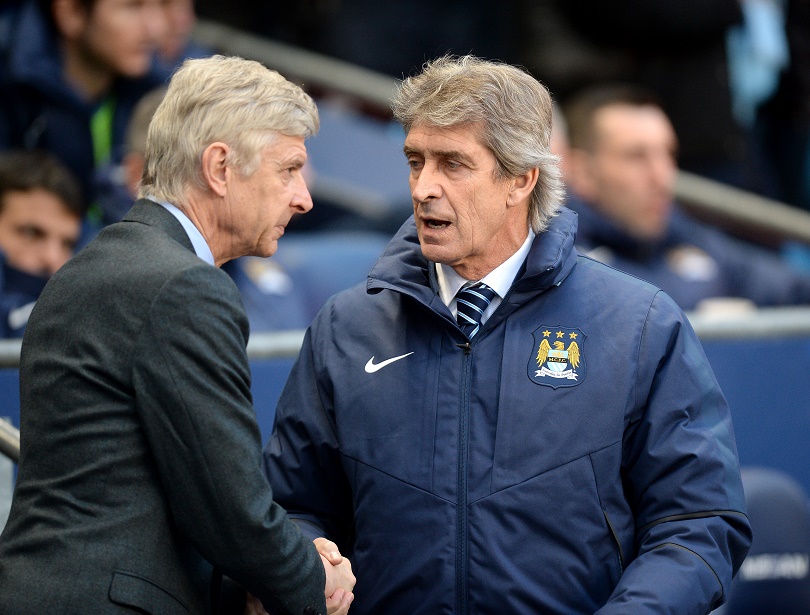
While the top clubs' collective stagnation has been compounded by the rise of the middle classes (there are only so many points to go round, after all), it is – for the most part – a separate phenomenon. And, given it’s constituted the simultaneous ineptitude of five different powerbases, it's a pretty astonishing one.
The appeal of Spain
Over the last seven years, all 21 places on the Ballon d’Or podium have been filled exclusively by players from Barcelona, Real Madrid and Bayern Munich (whereas in the decade before that, the Premier League supplied nine)
Again, money is something of a driving force. Real Madrid and Barcelona, who top Forbes’s list of the planet’s wealthiest clubs, have now been hoovering up the Premier League’s crème de la crème for the best part of a decade.
La Liga’s list of recruits – which ranges from Henry and Fabregas, through Alonso and Mascherano to Ronaldo, Modric, Suarez and Bale – is definitive, as is the fact that over the last seven years, all 21 places on the Ballon d’Or podium have been filled exclusively by players from Barcelona, Real Madrid and Bayern Munich (in the decade before that, the Premier League supplied nine). The Pep Factor may well bring an end to this migration of top talent, but as it stands, England’s best have hit a glass ceiling.
Yet not everything can be explained away by economics. Manchester United’s superclub status (they’re above Bayern in the rich list) hasn’t immunised them against the slapstick floundering of the last three years, nor has money been a factor in the season-long dereliction of duty by Chelsea’s entire first team.
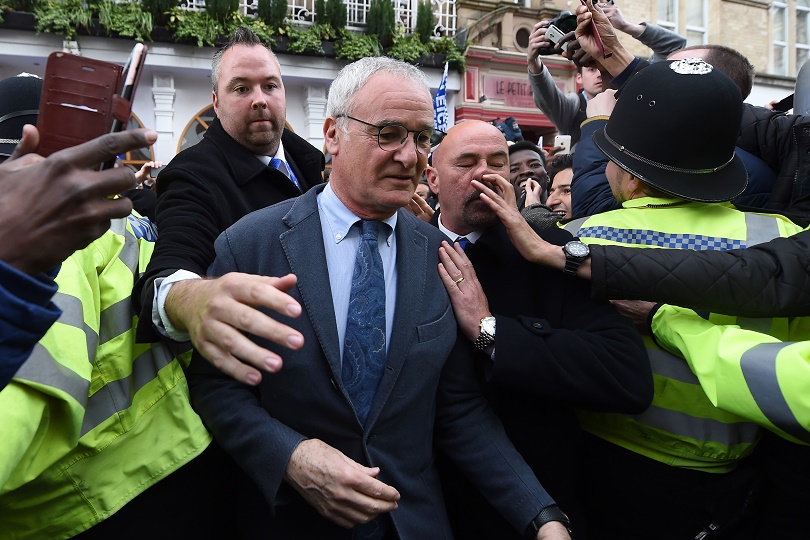
There’s a case to be made that Atletico Madrid, whose revenue stands at roughly one-third of their Spanish counterparts (dubious debt policies notwithstanding) are the finest side in Europe right now. And of course, if the Premier League was ordered by wage bill – the index routinely cited as the closest correspondent to success – then its current champions would not be 1st in the table, but 17th.
The latter two clubs especially have proved that profile of personnel needn’t be everything, that there is ground to be made up with a team that exceeds the sum of its parts, and that a willingness to reject the vogueish fixation with possession can be a powerful missile when flung the way of the goliaths. In short: don’t expect the big guns to clamber back onto their perch too easily.
Once in a lifetime?
But equally, it can’t be denied that Leicester’s title win seems to have been tossed together amid a perfect storm. The rise of the middle classes, the mass pratfall of England’s top clubs, the pulling power of Europe’s Big Three, the renewed potency of the counter-attack. And of course, their own capacity to surf this astonishing tidal wave of high spirits all the way to the finish line.
Some of these factors may have a shelf life, some may not. But whether all will converge in quite the same way ever again seems about as unlikely as... well, as unlikely as Wes Morgan hoisting the Premier League trophy seemed back in July.
In other words: logic suggests it’s almost entirely impossible. But don’t, under any circumstances, rule it out.
